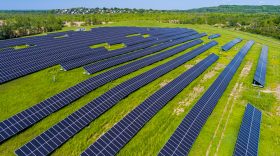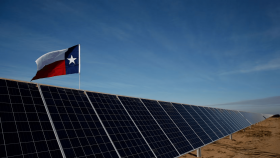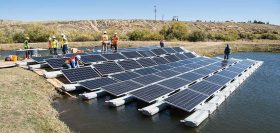On April 17, a group of U.S. solar manufacturers pushing for trade sanctions against Chinese PV firms released a report touting the benefits of U.S. manufacturing for the domestic economy.
The Coalition for American Solar Manufacturing (CASM) survey of looked at member firms’ purchasing activities in 2011. The survey found that four of the original coalition members purchased over $400 million in goods and services from other manufacturers and employers in 46 states in 2011.
CASM is the group of U.S. solar manufacturers that filed antidumping and countervailing duty petitions with the U.S. Department of Commerce and International Trade Commission last October.
CASM alleges that Chinese firms receive illegal government support, which has caused “a dozen U.S. solar manufacturers to shut down, declare bankruptcy or lay off employees in all U.S. regions since 2010.”
The group is comprised of 190 U.S. firms who employ over 16,000 American workers. Of the seven founding members, four participated in the survey: SolarWorld, Helios Solar Works, MX Solar USA and one anonymous member.
Some members of CASM have chosen to remain anonymous to avoid business retaliation.
The firms surveyed purchased a total of over $1 million in goods and services in 21 states, and at least $50 million in four states: Oregon ($86 million) and Pennsylvania ($74 million), Michigan ($60.8 million) and California ($50 million).
CASM contends that these figures highlight “just one dimension of solar manufacturing’s multiplier effect in supporting jobs and spurring activity across the U.S. economy.” The group argues that advanced manufacturing generates “high-paying and stable jobs and beneficial ripple effects, including research and innovation,” and thus should be protected from unfair competition.
CASM cited a National Association of Manufacturing study that found that “each dollar’s worth of manufactured goods creates another $1.43 of activity in other sectors, twice the $.71 multiplier for services.”
But the president of the Coalition for Affordable Solar Energy (CASE), the group opposing action against Chinese imports, said CASM’s “effort to raise the price of solar energy to America’s consumers and businesses is selfish, short-sighted and senseless.”
In an op-ed in The Hill, Jigar Shah noted that all governments looking to spur domestic solar demand have implemented support mechanisms, and that the drop in the cost of solar cells and panels has been a fundamentally good thing.
“Thousands of workers who lost jobs when the housing market collapsed are now gainfully employed in jobs — that can’t be outsourced — installing solar systems on homes, box stores, office buildings and at sites for utility-scale generation,” he wrote.
“The sharp drop in the cost of solar cells and panels has led to the greatest expansion of solar installations that the U.S. has ever seen.”
Last month, the Department of Commerce issued a preliminary decision to impose countervailing duties on Chinese PV imports. The Department will issue a preliminary decision on whether to impose antidumping duties on Chinese imports. The final rulings are expected in July 2012.





